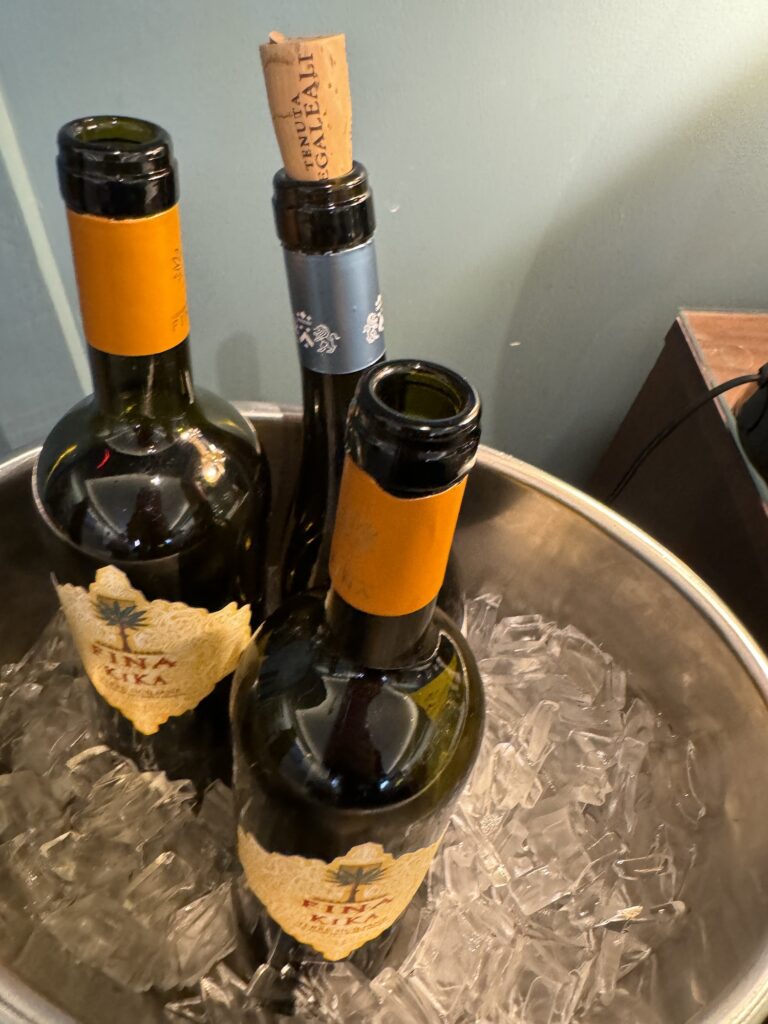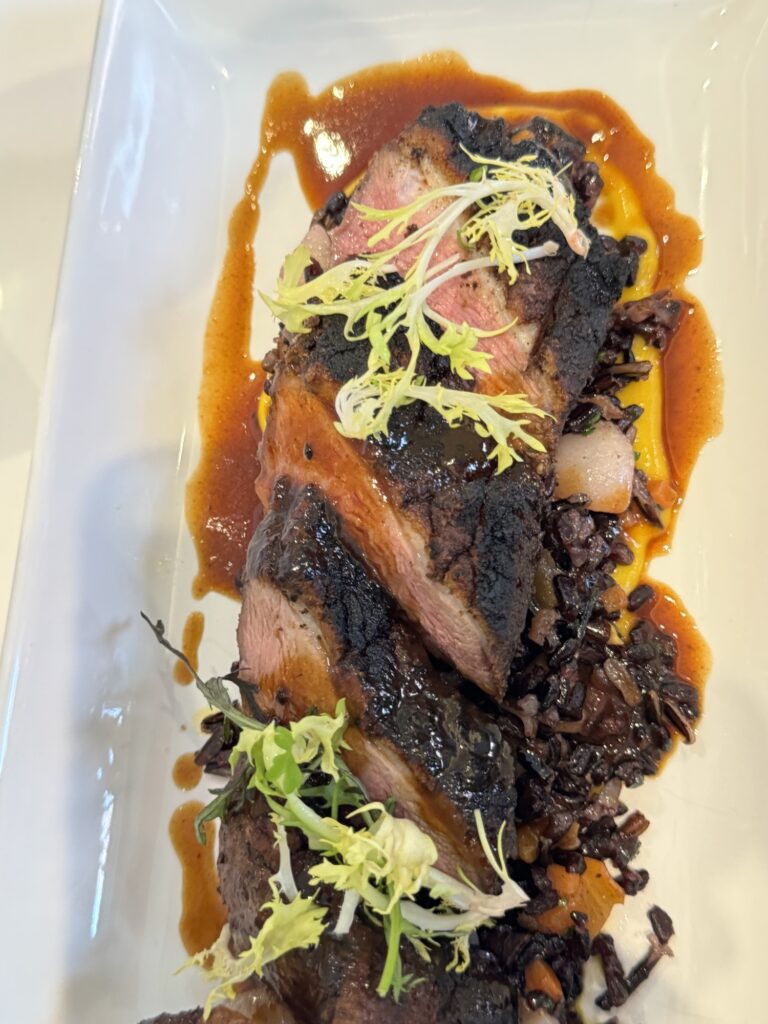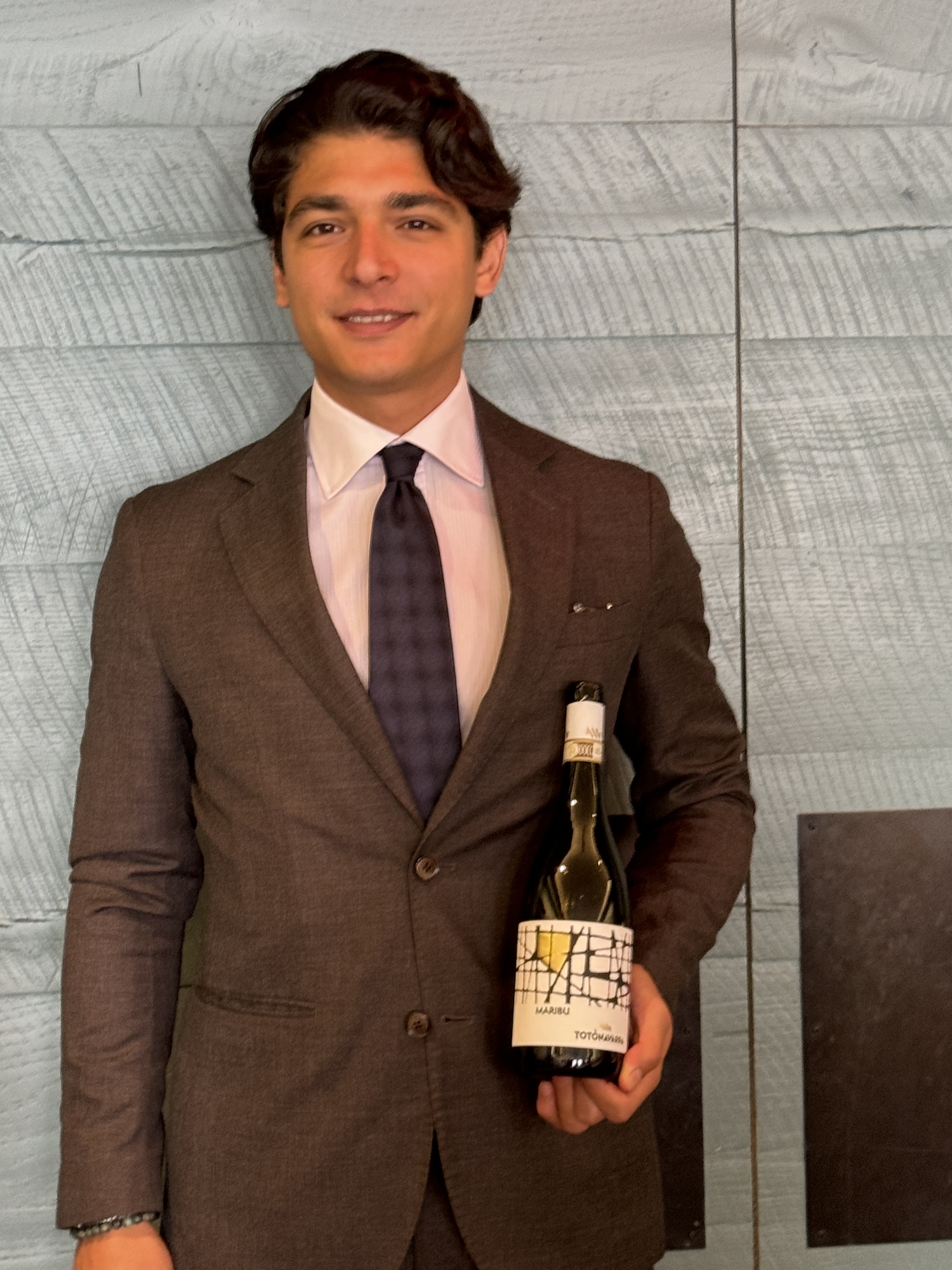Sicilian Wine Tasting Lunch with Assovini

Exploring the Unique Wines of Sicily
As a wine enthusiast, have you ever marveled at the intriguing allure of Sicilian wines?
Despite being cultivated in a region known for its arid climate, Sicilian wines, both white and red, boast a distinct racy acidity attributed to several factors.
Elevation and Soil Composition
One significant factor contributing to the exceptional quality of Sicilian wines is elevation. Coupled with the unique tapestry of soils, which include limestone and lava from the island’s still-active volcanoes, elevation plays a pivotal role in shaping the character of these remarkable wines.
The Wine-Pairing Lunch
Representatives from Assovini, notably Paola Camillo from Colangelo & Partners, and Michael Dolinski, the wine director at Portale, meticulously orchestrated a delightful wine-pairing lunch.
Pairing the wines of leading Assovini producers with Chef Alfred Portale’s contemporary Italian cuisine was no small feat but resulted in a harmonious marriage of flavors.
Attending as a guest and representing his winery was Mattia Piampiano, business development manager for Tenute Navarra winery.
Introduction to Sicilian Winemaking
Mr. Dolinski introduced the Assovini association of winemakers, highlighting Sicily’s rich winemaking tradition, which dates back over 4000 years to the ancient Etruscans. He aptly described Sicily as both the “youngest and the oldest winemaking region,” acknowledging its historical roots and recent resurgence.
Since the founding of the Assovini association in 1998, Sicily has witnessed a remarkable transformation, with the number of wineries on Mount Etna alone increasing from a handful to nearly 200. The association boasts a high concentration of young winemakers and executives, indicative of Sicily’s dynamic and innovative approach to winemaking.

The Wine Pairings

The wine pairing commenced with a selection of white wines, including Feudo Disisa – Lu Bancu Monreale DOC 2022, Tasca d’Almerita – Tenuta Regaleali Nozze d’Oro Sicilia DOC 2021, and Fina – Kike’ Terre Siciliane IGT 2022. These wines complemented the appetizers, enhancing the flavors of Insalata di Ceasare and Frutti di Mare.
Transition: Moving on to the pasta course, two Cerasuolo wines, Tenute Navarra – Maribu Cerasuolo Di Vittoria DOCG 2022 and Valle dell’Acate – BDN Cerasuolo di Vittoria Classico DOCG 2020, were expertly paired with Lumache and Cavatelli, showcasing the wines’ high acidity and fine-grained tannins.
For the entree, three red wines, Nicosia – Contrada Monte Gorna Etna DOC Rosso 2020, Tenuta Ferrata – Punta Drago Etna Rosso DOC 2019, and Dei Principi di Spadafora – Sole dei Padri Terre Siciliane IGT 2012, beautifully complemented the Spigola Nera and Anatra dishes. Their rich flavors and textures harmonized with the savory entrees, creating a memorable dining experience.
To conclude the meal, guests indulged in chocolate-almond biscotti paired with Donnafugata – Ben Ryé Passito Di Pantelleria DOC 2021, a delightful finale to an exquisite culinary journey.

Reflections on Contemporary Italian Cuisine and Winemaking
Chef Portale’s commitment to freshness in cuisine mirrored the mindset of Assovini producers, who strive to capture the essence of Sicilian terroir in their wines. Mr. Dolinski eloquently highlighted the concept of “contrada,” emphasizing the importance of vineyard specificity in Sicilian winemaking. Just as in Burgundy, France, where different soil compositions contribute to the diversity of wines, Sicilian vineyards boast a similar complexity shaped by volcanic activity and limestone deposits.
In conclusion, the world of Sicilian winemaking is marked by innovation, tradition, and an unwavering commitment to quality. The extraordinary factors influencing Sicilian wine production promise exciting times ahead for wine enthusiasts seeking new and captivating experiences.




